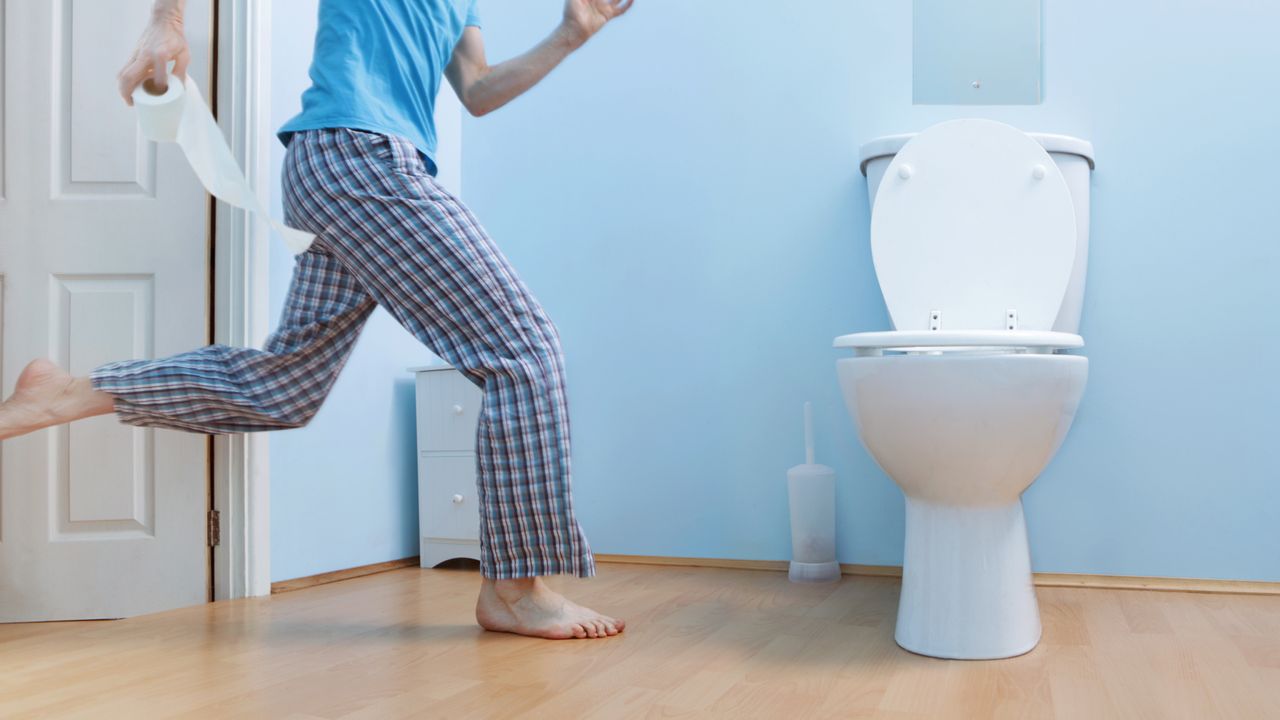Health
Understanding the Satisfying Relief of Bowel Movements

Experiencing a bowel movement often brings a profound sense of relief, but the reasons behind this feeling are not fully understood. According to Dr. Hannibal Person, a pediatric gastroenterologist at Seattle Children’s Hospital, the phenomenon involves a complex interplay of physical, behavioral, and psychological factors.
The process begins when the bowels fill, triggering nerve endings that send signals to the brain about discomfort due to stretching. This sensation prompts the internal anal sphincter to open involuntarily, while the external sphincter typically holds back the urge. “We can clench our anus, tighten up our pelvic floor, even flex other muscles, like our hamstring, to kind of hold things back,” Dr. Person explained. As pressure builds, it becomes increasingly difficult to resist the call of the bathroom.
Neurological Responses to Bowel Movements
The relief experienced after a bowel movement is not just physical. Functional MRI studies have shown that areas of the brain, including the anterior cingulate gyrus and the insula, respond positively when the discomfort of distension is alleviated. “When you relieve the distension, these regions show a reward response,” noted Dr. Lucinda Harris, a gastroenterologist and motility specialist at the Mayo Clinic Alix School of Medicine in Arizona.
The gut communicates with the brain via the vagus nerve, a major cranial nerve that plays a significant role in regulating bodily functions. When a bowel movement occurs, it stimulates the vagus nerve, which can lead to a decrease in blood pressure and heart rate, contributing to a feeling of relaxation. Dr. Person emphasized that relieving pressure and discomfort can reinforce the behavior in a positive way.
The Role of the Pudendal Nerve
In addition to the vagus nerve, the process may also involve stimulation of the pudendal nerve, which controls pelvic floor tension. Holding back a bowel movement can create tension in the pelvic floor muscles, leading to discomfort. Dr. Harris stressed the importance of learning to relax these muscles, as tension can exacerbate pain and discomfort.
Understanding the mechanisms behind the relief of bowel movements can deepen our knowledge of gastrointestinal health. This knowledge is particularly important as many individuals experience challenges related to bowel function. By exploring the physical and psychological aspects of this common bodily function, experts hope to enhance comfort and promote better health practices.
The satisfaction felt after a bowel movement is a multifaceted experience that highlights the intricate connections between our bodies and minds. As research continues, it may provide further insights into the remarkable processes that govern our everyday lives.
-

 Politics2 weeks ago
Politics2 weeks agoDallin H. Oaks Assumes Leadership of Latter-day Saints Church
-

 Sports1 week ago
Sports1 week agoSteve Kerr Supports Jonathan Kuminga After Ejection in Preseason Game
-

 Business1 week ago
Business1 week agoTyler Technologies Set to Reveal Q3 2025 Earnings on October 22
-

 Lifestyle1 week ago
Lifestyle1 week agoDua Lipa Celebrates Passing GCSE Spanish During World Tour
-

 World1 week ago
World1 week agoD’Angelo, Iconic R&B Singer, Dies at 51 After Cancer Battle
-

 Science2 weeks ago
Science2 weeks agoChicago’s Viral ‘Rat Hole’ Likely Created by Squirrel, Study Reveals
-

 Lifestyle1 week ago
Lifestyle1 week agoKelsea Ballerini Launches ‘Burn the Baggage’ Candle with Ranger Station
-

 Health1 week ago
Health1 week agoCommunity Unites for Seventh Annual Mental Health Awareness Walk
-

 Entertainment2 weeks ago
Entertainment2 weeks agoZoe Saldana Advocates for James Cameron’s Avatar Documentary
-

 Business2 weeks ago
Business2 weeks agoMLB Qualifying Offer Jumps to $22.02 Million for 2024
-

 Health1 week ago
Health1 week agoRichard Feldman Urges Ban on Menthol in Cigarettes and Vapes
-

 Business1 week ago
Business1 week agoMega Millions Jackpot Reaches $600 Million Ahead of Drawings









